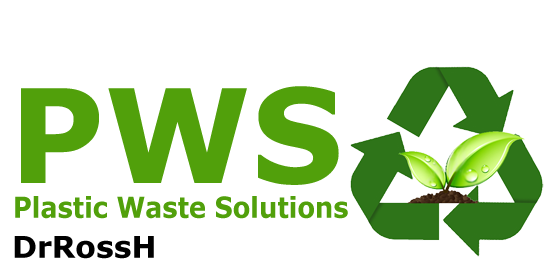How the Plastics Industry Is Fighting to Keep Polluting the World
Posted on July 30, 2019 by DrRossH in Plastic Waste NewsSource: How the Plastics Industry Is Fighting to Keep Polluting the World
A Bag’s Life is just one small part of a massive, industry-led effort now underway to suppress meaningful efforts to reduce plastic waste while keeping the idea of recycling alive. The reality of plastics recycling? It’s pretty much already dead. In 2015, the U.S. recycled about 9 percent of its plastic waste, and since then the number has dropped even lower. The vast majority of the 8.3 billion metric tons of plastic ever produced — 79 percent — has ended up in landfills or scattered all around the world. And as for those plastic shopping bags the kids were hoping to contain: Less than 1 percent of the tens of billions of plastic bags used in the U.S. each year are recycled.
This is not to say that we shouldn’t try to properly dispose of the array of toys, single-use clamshells, bottles, bags, takeout containers, iced coffee cups, straws, sachets, yogurt tubs, pouches, candy bar wrappers, utensils, chip bags, toiletry tubes, electronics, and lids for everything that passes through our lives daily. We have to. But we are well past the point where the heartfelt efforts of schoolchildren or anyone else on the consumer end can solve the plastics problem. It no longer matters how many hoots we give. There is already way too much plastic that won’t decompose and ultimately has nowhere to go, whether it’s mashed into a dragon container or not.

 How many people today grab a takeaway coffee cup from the local cafe to drink on the go? We don’t know, but the number must be enormous.. Most every one of the above have a plastic top that will last 100s of years. Some cafes still use plastic cups that last a similar time. Is 10 minutes of coffee worth 100s of years of trash?
These items can be seen littering our gutters and on our streets all over the place. If they were all cardboard, they would still be littered, but they would, at least, be gone in a short time.
They do not need to be made of plastic.
How many people today grab a takeaway coffee cup from the local cafe to drink on the go? We don’t know, but the number must be enormous.. Most every one of the above have a plastic top that will last 100s of years. Some cafes still use plastic cups that last a similar time. Is 10 minutes of coffee worth 100s of years of trash?
These items can be seen littering our gutters and on our streets all over the place. If they were all cardboard, they would still be littered, but they would, at least, be gone in a short time.
They do not need to be made of plastic.
 On the way home from the gym last week, a distance of about 1 km (1/2 mile), I counted the items of plastic litter on the curb as I walked. In that short distance I counted 63 pieces of plastic litter. Plastic drink bottles, bottle tops, candy wrappers, plastic film, polystyrene fragments etc. That seemed to be a lot to me. I guess it is a generational thing. Our parents would have been horrified to see that amount, whereas it seems to go unnoticed by our youth of today. In another 20 years how many pieces will there be on this stretch, -- 200? What will today’s youth think of that new amount then when they are older? Will their children be so readily accepting of a higher amount of litter?
On the way home from the gym last week, a distance of about 1 km (1/2 mile), I counted the items of plastic litter on the curb as I walked. In that short distance I counted 63 pieces of plastic litter. Plastic drink bottles, bottle tops, candy wrappers, plastic film, polystyrene fragments etc. That seemed to be a lot to me. I guess it is a generational thing. Our parents would have been horrified to see that amount, whereas it seems to go unnoticed by our youth of today. In another 20 years how many pieces will there be on this stretch, -- 200? What will today’s youth think of that new amount then when they are older? Will their children be so readily accepting of a higher amount of litter?
Discussion · No Comments
There are no responses to "How the Plastics Industry Is Fighting to Keep Polluting the World". Comments are closed for this post.Oops! Sorry, comments are closed at this time. Please try again later.